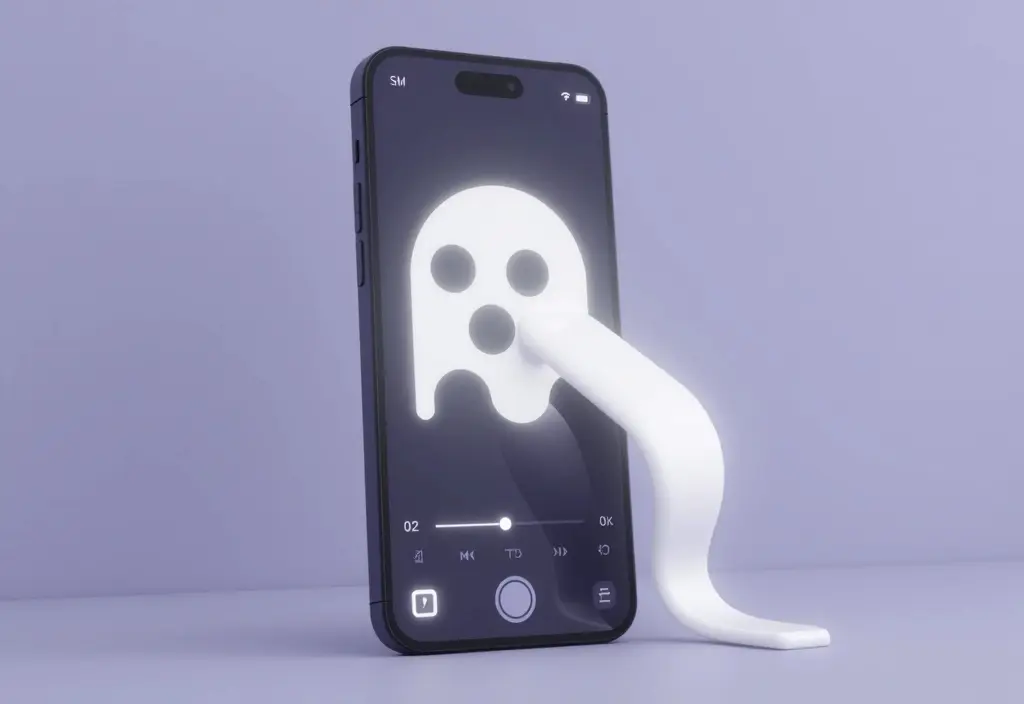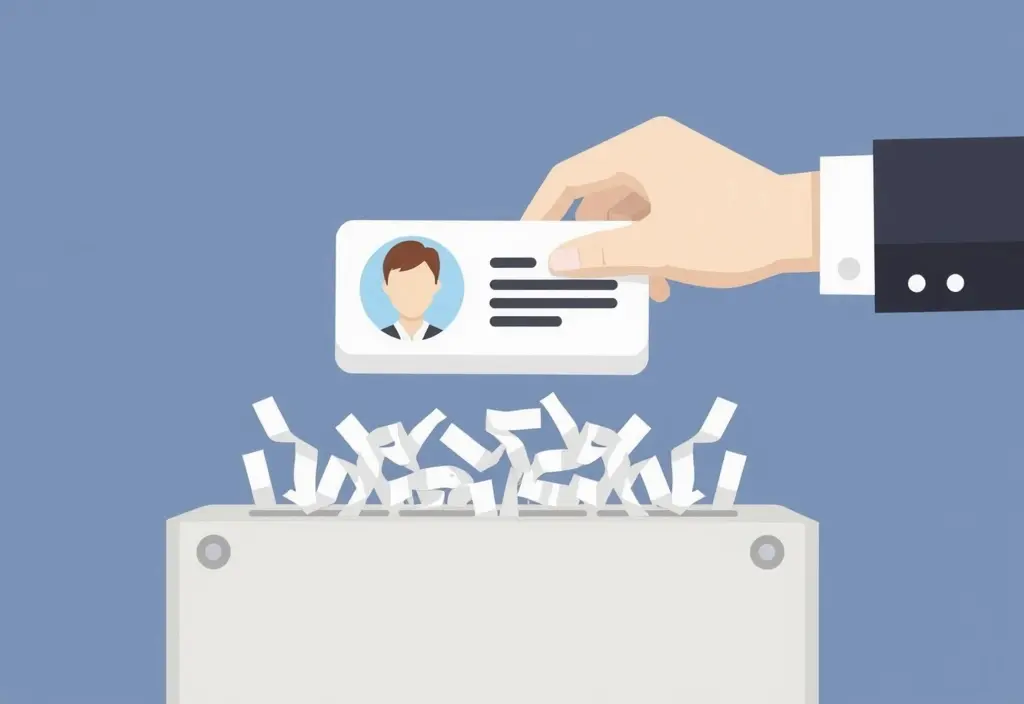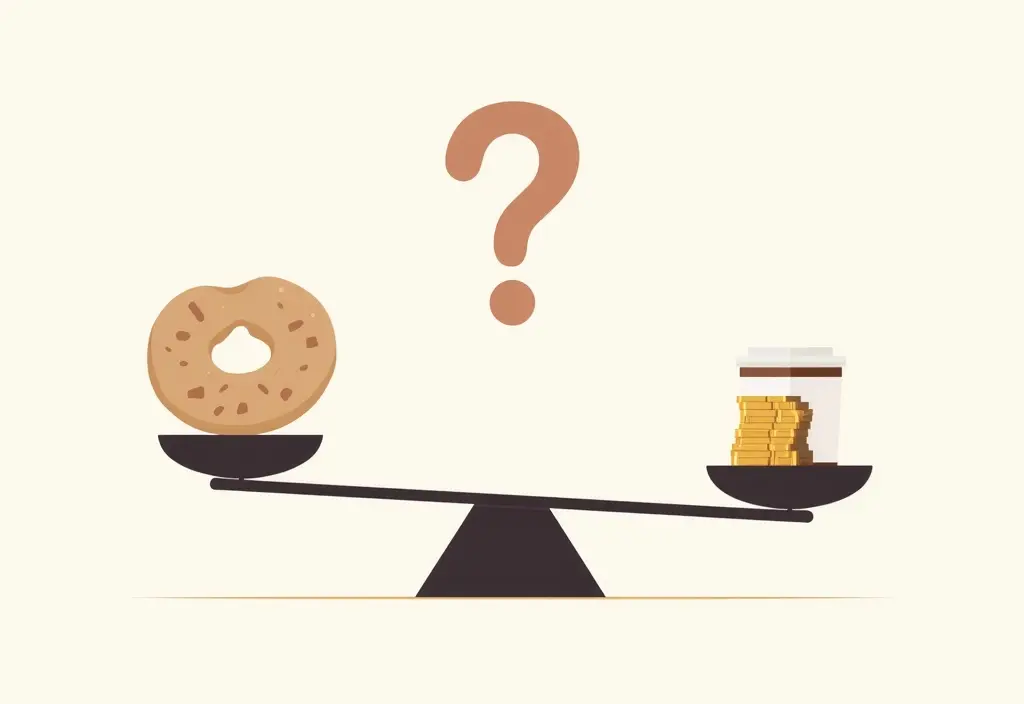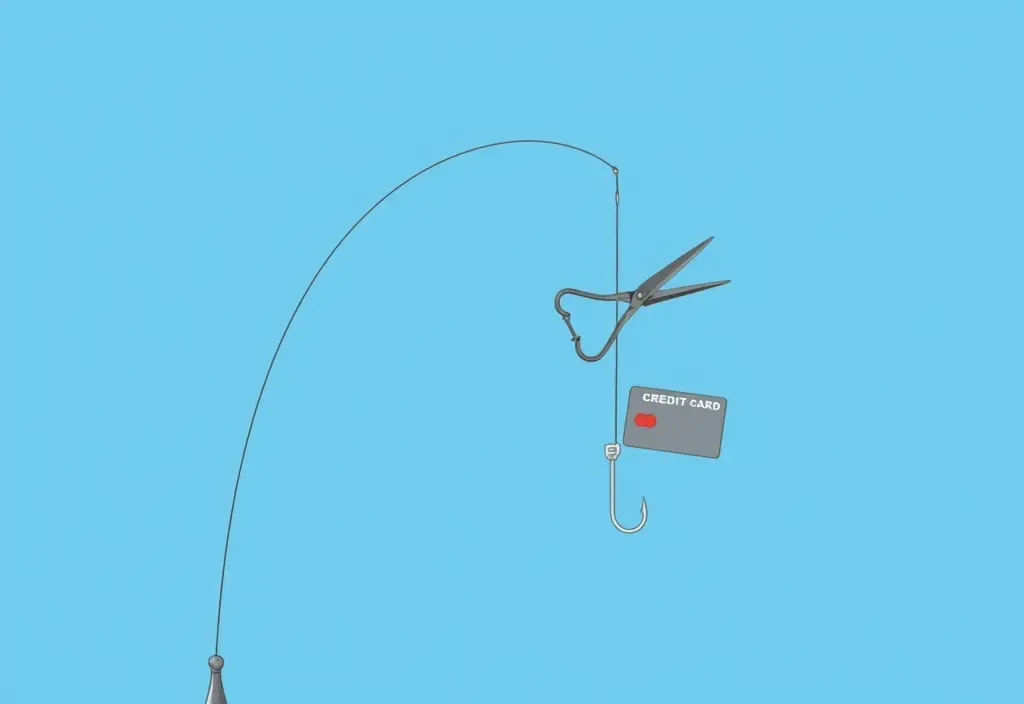It was a Tuesday night, and my close friend Mark was quiet on the phone. Too quiet. Mark is normally the life of the party, a vibrant guy who moves through the world with a confidence I’ve always admired. That night, though, his voice was flat, emptied out by a fresh sense of violation. He’d been talking to someone on Grindr for a few weeks, and their chats had gone deeper than just casual banter. Mark started sharing personal things, like the tough road he traveled coming out to his conservative family. He thought he was building a genuine connection.
He was wrong. The person he’d been opening up to had screenshotted their entire conversation and shared it with a mutual friend, twisting Mark’s vulnerability into a cheap joke. The question he asked me, his voice a mix of anger and shame, is the same one that hangs in the air of countless private chats every single day: Does Grindr notify screenshots?
That conversation sent me down a deep rabbit hole. The answer I found isn’t a simple yes or no; it’s a complicated reality every single person on the platform should understand. In a world where our digital and real lives are completely tangled together, knowing who sees our private moments isn’t just about curiosity. It’s about safety.
This article is for Mark and for anyone else who has ever paused before hitting send, wondering where their words or pictures might go next. We’re going to peel back the layers on Grindr’s policies, look at the technical challenges, and, most importantly, talk about what you can do to keep yourself safe.
More in Connection & Dating Category
Key Takeaways
- The Short Answer: Nope. Grindr doesn’t send you an alert if someone screenshots your regular chat or profile.
- The Big Caveat: The “Expiring Photos” feature is the only place where Grindr tries to block screenshots, but it isn’t a perfect system.
- So Why Not Everywhere?: It’s a mix of tough technical problems between iPhones and Androids and a deliberate choice to keep the user experience less paranoid.
- You Hold the Power: Since the app itself offers limited protection, the best defense is being smart and careful about what you choose to share.
So, What’s the Real Answer? Does Grindr Tell Someone if You Screenshot a Chat?
Let’s get right to it. The reason you’re here.
The short, blunt answer is no.
If you’re in a normal chat with someone on Grindr and they screenshot your messages, you won’t know. If they screenshot your profile—your photos, your bio, anything—you will be completely oblivious. No alert pops up, no little ghost icon appears. Your content just gets captured and saved to another person’s phone, and you’re none the wiser.
This isn’t some oversight. It’s a deliberate choice, born from a mix of tech limits and app design. Snapchat built its whole brand on disappearing messages and screenshot alerts, but Grindr works more like a regular texting app. It’s similar to iMessage or WhatsApp; the platform provides the space for the conversation but doesn’t police how users on either end decide to capture it.
Realizing this can be unsettling. We tend to feel a sense of privacy in a one-on-one chat, thinking of it as a private room. In reality, that room has a one-way mirror you never knew about. The person you’re talking to has the power to make your words and pictures permanent without you ever knowing. You have to start from that baseline.
It’s a harsh truth.
But Wait, I Heard Grindr Blocks Screenshots. Is That True?
This is where things get a bit more complicated, and it’s a vital distinction to make. While Grindr lacks a universal notification system, it has put protections in one very specific corner of the app. This feature is the exception to the rule, and it’s called “Expiring Photos.”
The Big Exception: What Are Expiring Photos?
Expiring Photos is Grindr’s take on the disappearing message trend. It lets you send a photo that can only be viewed once for a few seconds before it vanishes—in theory, anyway. To see it, the other person has to tap and hold the screen, much like an old Snapchat story.
The whole point is to offer a safer way to share more sensitive or intimate pictures without having them live forever in someone’s chat history. It’s for the kind of content you’re okay with sharing in the heat of the moment but not so comfortable with existing on a stranger’s phone for all time. The feature is built on a promise of impermanence. But does that promise actually hold up?
How Does Grindr Handle Screenshots of These Expiring Photos?
This is the one and only place where Grindr actively tries to intervene. How the app behaves, though, comes down to which operating system you’re using.
- On Android: Because the operating system gives apps more control, Grindr can usually just block the screenshot. If you try to capture an Expiring Photo, you’ll most likely end up with a useless black image. It stops the screenshot from ever happening.
- On iOS (iPhone): Apple’s iOS is much stricter about an app’s ability to control core phone functions like taking a screenshot. Because of this, Grindr can’t always prevent it. Instead, if someone screenshots an Expiring Photo, the app might show a message like “Screenshotting is not allowed” and let the sender know an attempt was made.
It’s critical to remember this system isn’t foolproof. A determined person can always use another phone or camera to take a picture of the screen. So, while Expiring Photos give you a layer of protection that regular chat images don’t, they are not an unbreakable safe. Think of them as a deterrent, not a guarantee.
Why Doesn’t Grindr Just Notify for All Screenshots?
If the app can interfere with screenshots for Expiring Photos, why not do it everywhere? Why not give users that peace of mind across the board? The reasons boil down to a combination of technical headaches and a deliberate choice about how the app should feel to use.
Is it a Technical Hurdle?
Yes, that’s a big part of it. Building a reliable screenshot notification system that works for everyone is incredibly hard. As we just saw, iOS and Android treat screenshots in fundamentally different ways. A solution that works perfectly on one platform is often a non-starter on the other.
Developers hate releasing a feature that works great for one half of their users and is a buggy mess for the other. If they can’t make it work seamlessly for everyone, sometimes it’s better not to build it at all. It’s not as simple as flipping a switch.
Or is it About the User Experience?
This might be the even bigger reason. Imagine an app where you were constantly worried about triggering notifications. A steady flow of “John Doe screenshotted your chat” alerts could easily create an atmosphere of paranoia instead of connection.
Dating apps are always walking a tightrope between making you feel safe and making the app actually fun to use. They want people to feel secure, but they also want them to interact freely and naturally. For many, screenshotting a funny profile to share with a friend is a normal part of the online dating experience. A constant notification system could make these innocent actions feel like an accusation.
It could also lead to more conflict. If someone gets a notification, they might immediately confront the other person, sparking arguments over something that might have been harmless. By staying out of it, the platform remains neutral and puts the onus on users to be responsible for what they share. It’s a tough call, but Grindr has sided with a less policed, more open-ended experience.
If There’s No Notification, How Can My Information Be Misused?
This is the heart of the matter. A screenshot isn’t just a picture; it’s a permanent copy of a temporary moment. The second it’s created, you lose all control. It can be copied, edited, and shared in ways you never imagined. My friend Mark’s experience was emotionally devastating, but for others, the fallout can be much, much worse.
The Friend Who Learned the Hard Way
Let me tell you more about Mark. The conversation that was shared wasn’t just idle chit-chat. He was talking about the raw fear he felt before telling his parents about his identity, the wave of relief that came after, and the quiet sadness that his relationship with them had permanently changed. He sent those messages from a place of deep honesty, believing he was talking to someone who got it.
When those screenshots were passed around, they were stripped of all that context and presented as “drama.” The person who shared them added their own nasty commentary, painting Mark as some kind of attention-seeker. It was a complete betrayal that made him question his own judgment. He went quiet for weeks. His vulnerability was turned into a weapon against him, all made possible by a simple screenshot. It was a digital violation with a very real impact. That’s what’s at stake here.
What are the Biggest Risks of Screenshots?
Mark’s story is just one example. The misuse of screenshots can spiral into life-altering situations. It’s vital to understand the potential dangers.
- The Risk of Being Outed: This is the big one. For people who aren’t out to their family, friends, or coworkers, having their Grindr profile or private chats exposed can be catastrophic. A screenshot can forcibly out someone, jeopardizing their relationships, housing, and even their job.
- The Threat of Harassment and Blackmail: Screenshots can quickly become weapons. Someone with a grudge can use intimate chats or photos to harass you online. In the worst cases, it can turn into blackmail, with threats to release sensitive material unless certain demands are met.
- The Danger of Identity Theft: Your profile holds a lot of personal data: photos, age, general location, and details from your bio. A scammer can screenshot all of it to build a fake profile, impersonating you to trick or defraud other people.
- The Harm to Your Reputation: Even if the information isn’t deeply private, it can still be used to hurt you. Conversations can be selectively edited or presented without context to make you look bad, which can cause real social or professional problems.
So, How Can I Protect Myself on Grindr Then?
Since you can’t rely on the app to warn you, the power to stay safe is entirely in your hands. It means you have to be proactive and mindful about how you use the app. You need to become the sole guardian of your own privacy. This isn’t about being paranoid; it’s about being smart in a digital space with very few safety rails.
Is Your Profile a Privacy Risk?
Think of your profile as the front door to your digital life. Before you even send a single message, you’re giving information to everyone nearby. Take a hard look at it with a critical eye.
What could a stranger figure out from your profile alone? Are you using a photo that’s also on your public LinkedIn or Facebook? A simple reverse image search could link your Grindr profile to your real name and your job. Do you list your specific title or the neighborhood you live in? These details make you incredibly easy to identify.
Your best bet is to create some separation. Use photos that exist only on your dating profiles. Be vague about your location and job. You can always share more details in a private chat after you’ve built some trust. Your profile should be a teaser, not your life story.
Are You Sharing Too Much in Chat?
The chat is where you’re most vulnerable. It’s so easy to get swept up in a good conversation and share more than you should, especially when you feel that spark of connection. This is where you have to keep a little voice in the back of your head reminding you to be careful.
The golden rule is this: Don’t send anything you wouldn’t want your boss or your grandma to see on a public billboard. That goes for text, photos, and videos. The moment you hit send, it’s out of your control. That revealing photo can be saved. That personal story can be screenshotted. That private detail can be recorded forever.
Use the Expiring Photos feature for more sensitive pictures, but don’t forget it has its limits. It’s a hurdle, not a wall. Before you share something deeply personal, ask yourself: How well do I really know this person? What is my gut telling me? It’s always better to take your time and build trust than to rush into oversharing with a stranger and regret it later. A real connection won’t require you to sacrifice your safety.
Have There Been Legal Consequences for Screenshotting on Grindr?
While the internet can feel like a lawless place, it isn’t. The act of taking a screenshot itself isn’t illegal, but what is done with that screenshot can definitely be a crime.
Is Screenshotting Someone’s Grindr Illegal?
Taking a screenshot for your own private use generally isn’t a crime. The legal trouble starts when it gets shared. Depending on what’s in the screenshot and why it was shared, several laws could be broken.
For example, sharing an intimate image of someone without their permission could violate “revenge porn” laws, which are on the books in most states. The Cyber Civil Rights Initiative provides a great breakdown of these laws. Likewise, using screenshots to repeatedly threaten or harass someone could lead to charges of cyberstalking. These cases aren’t always easy to prove, but they are absolutely possible.
What About Grindr’s Own Terms of Service?
Separate from the law, there are the rules of the app itself. Grindr’s terms of service, like most platforms, forbid harassment, impersonation, and sharing someone’s private information without their permission. Sharing screenshots of a private chat would almost certainly violate these rules.
If someone is misusing your information, you absolutely should report their profile to Grindr. The most common consequence is getting banned from the platform. While that doesn’t erase the harm that was done, it prevents that person from doing the same thing to others. It’s an important step in holding people accountable within the digital community.
Your Digital Privacy Is In Your Hands
When my friend Mark asked me, “Does Grindr notify screenshots?” he was really asking a much bigger question: “Am I safe here?”
The answer is that your safety is conditional. The technology itself offers a very limited safety net. There are no alarms, no warnings, and no notifications when your private moments are being captured and stored—except in the narrow context of Expiring Photos.
This leaves the responsibility for protection in one place: with you.
Using a dating app is a constant negotiation between being open and staying guarded, between showing your true self and protecting yourself. It’s about being brave enough to forge new connections while being wise enough to protect your own heart and your own information. Think before you send. Curate your profile with care. Trust your instincts.
A screenshot may only take a second to capture, but its impact can last a lifetime. In the end, the most powerful privacy setting isn’t in the app’s menu; it’s in your own judgment. Use it well.
FAQ – Does Grindr Notify Screenshots

How can users protect their privacy while using Grindr?
Users should carefully manage their profile information, avoid sharing sensitive content unless necessary, utilize Expiring Photos for private images, and trust their instincts to avoid oversharing.
What risks are associated with screenshots on Grindr if no notifications are provided?
Screenshots can lead to risks such as outing someone without their consent, harassment, blackmail, identity theft, and damage to reputation, as the images and messages become permanently shared or misused.
Why doesn’t Grindr notify users every time a screenshot is taken?
Grindr’s decision is influenced by technical challenges related to different phone systems and a desire to maintain a user experience that is less paranoid and more natural.
Are there any features on Grindr that notify or prevent screenshots?
Yes, Grindr has an ‘Expiring Photos’ feature that attempts to block screenshots, but its effectiveness varies depending on the device and operating system.




